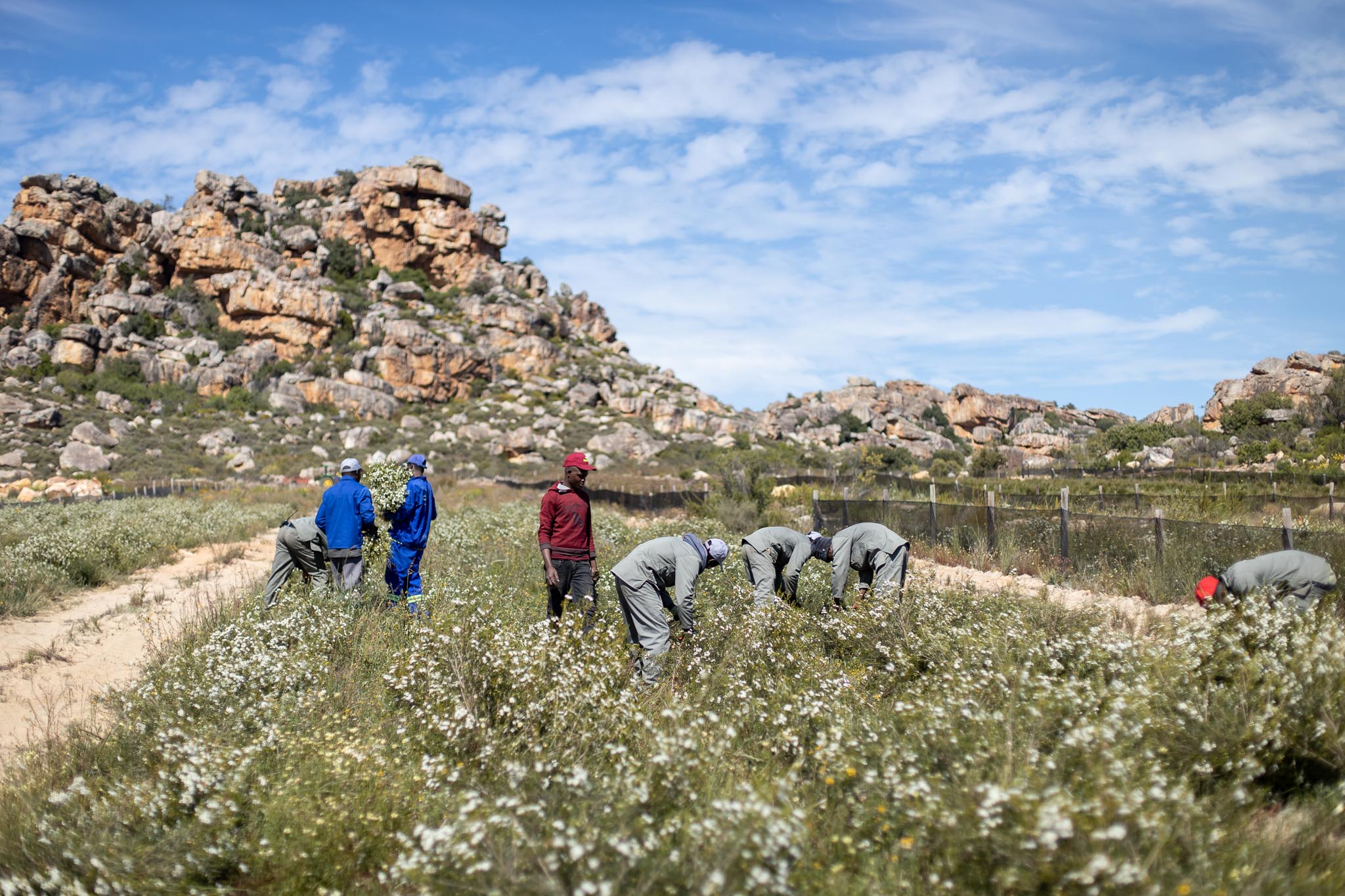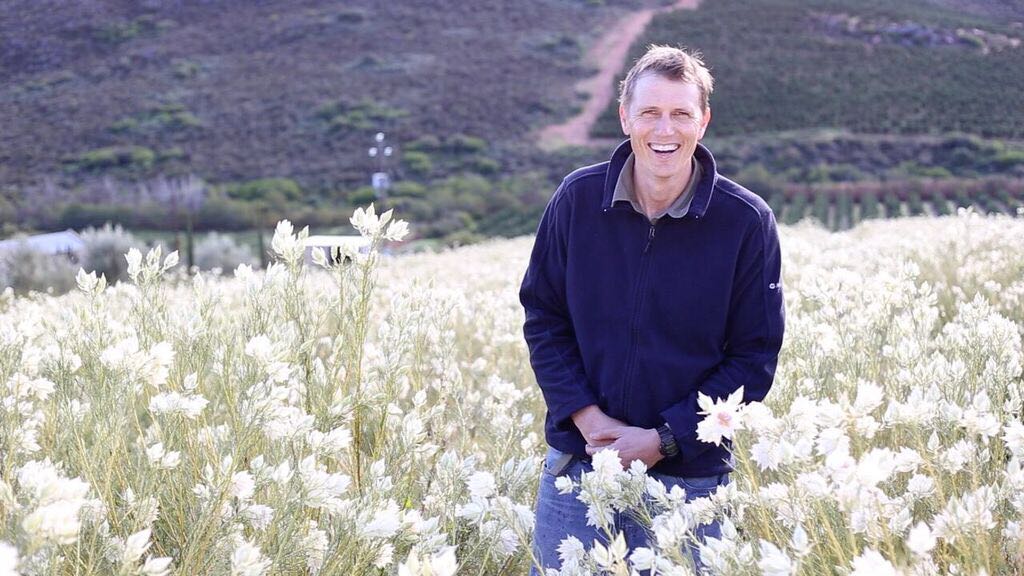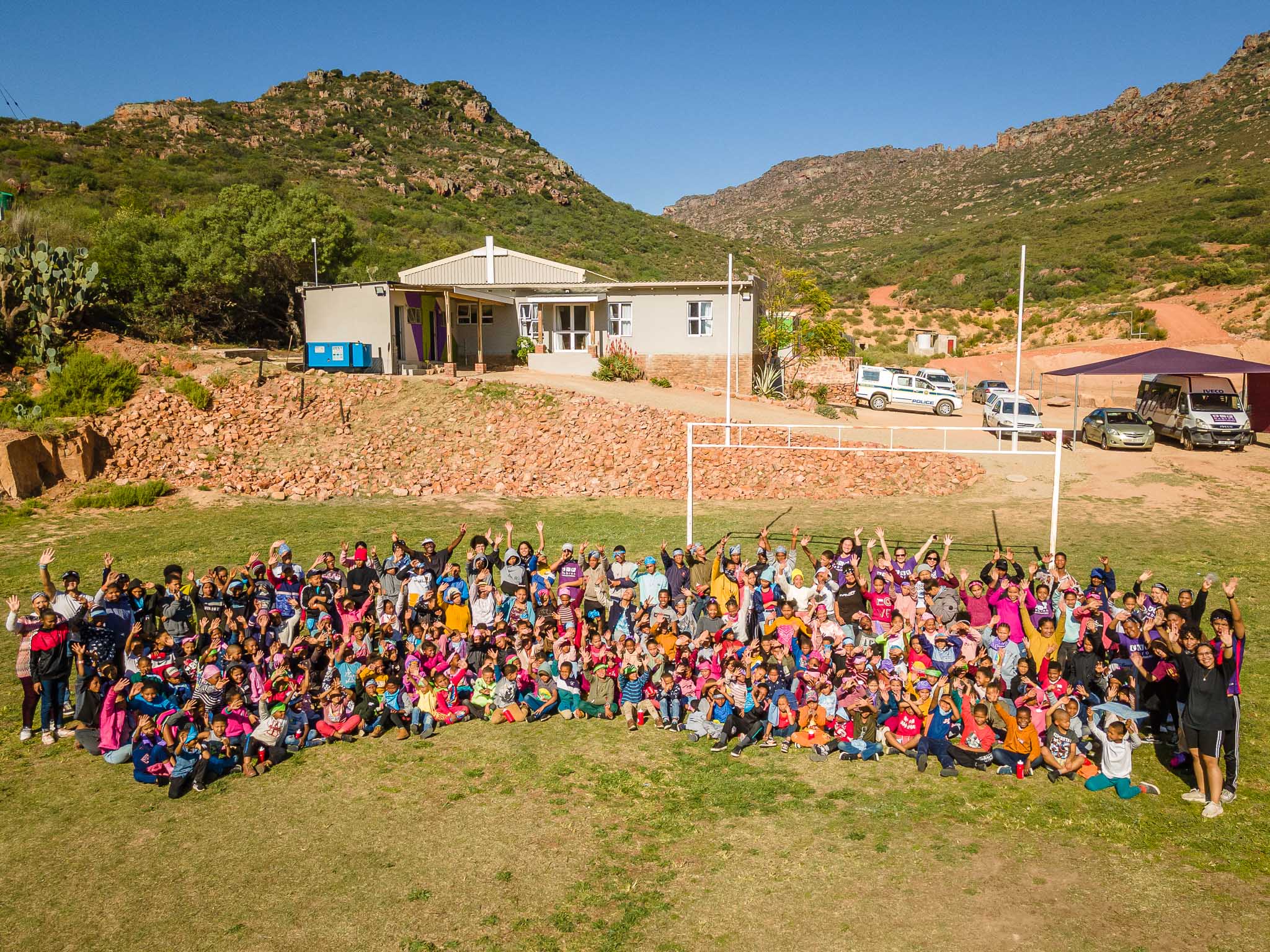Growing and sowing change in rural South Africa
At Further & Field, we're teaming up with growers and partners who, like us, believe in taking action. This commitment is shared by our partner Neil Hall of Temba Flowers, who's built a blossoming farm and an NGO focused on youth development. In our interview, discover how his dedication transforms both land and lives.

New beginnings on Philadelphia Farm
Growing up in the city, Neil always felt a pull towards the great outdoors. “I don’t come from a farming family, but from a young age I knew I wanted to work in and with nature.” Neil reflects. “We were very fortunate to have a piece of land on the west coast of South Africa. So after our studies, my wife Olivia and I decided to build this little piece of land from scratch without any existing infrastructure or productive farming crops.
This endeavor eventually led to the birth of ‘Philadelphia Farm’. The next choice the couple had to make what kind of crop to plant. Neil continues; “Our farm is located near a place called ‘Citrusdal’, as the town name suggests, the area is jam packed with citrus fruit farms. As a flower producer we are actually the odd ones out. But I loved the idea of growing flowers, as you can be involved in every step of the value chain; from growing and packing to branding and sales.

Being your own pioneer
Growing African Exotics is a small industry. And with the unique topography and the altitudes of South Africa, there is no copy pasting of production methods from other farmers. Neil explains “In the beginning we had to figure out what would work on our farm and what suited our area. Each farmer must become their own pioneer and has their own secret formula with what works for their particular microclimate.” This approach led them to focus on Chamelaucium (waxflowers) and Serruria Florida (blushing bride), both of which thrive in the unique environment.
“There is a huge amount of sentiment when it comes to growing something. Therefore, we try to have a start to finish kind of model. We have a nursery where we propagate our own plants. Then they are selected for a particular part of a farm where we manage the plants by soil type, irrigation, and fertilizer requirements. In about 18 to 24 months we can harvest the flowers. It’s truly something special, walking through a productive flower field, I would hope that our products can transcend that feeling in one way or another”.

Hope Blooms
Over the years, the farm has expanded to encompass three production areas, totaling around 50 hectares. And with the expansions, a new brand was created: ‘Temba Flowers’. Neil continues; “’Temba’ in a local South African language means ‘Hope’, that is also where our tagline ‘Hope Blooms’ comes from. We now employ a team of 44 staff during the off-season and up to 110 during peak production. Those 44 permanent workers and their families live on the farms, mainly because the farms are so remote. “We are located 35km from our nearest town and the farms are up in the mountains”. The people living on the farms form their own communities, which brings a number of challenges.
Hebron Community Projects
Recognizing the challenges faced by rural farming communities, especially regarding childcare and youth development, Neil and Olivia established the NGO ‘Hebron Community Projects’ 3 years before they started Philadelphia Farm’. “I think that’s a testament of where our heart is: it’s in the community and the difference we wanted to make here.” Through the initiative, they provide support to children aged 0 to 16, offering daycare, afterschool care, meals, and holiday programs.
Neil continues; “We now have been running the NGO for over 16 years. And honestly, running a NGO has proven more challenging at times than running a farm. You can do so much for people, and you seeing them going back to their old ways is heartbreaking. But at the end of the day, knowing that we could have made an impact on one person by what we do makes it all worthwhile.”
Let’s do better,
work together.
Looking to purchase our products, team up or talk business opportunities? We’re happy to hear from you!
Get in touch